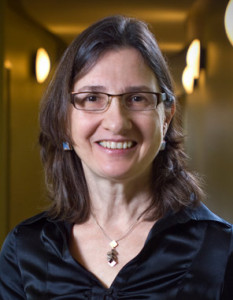Sandra Byers
 1) What is your official current position and title?
1) What is your official current position and title?
Professor and Chair in the Department of Psychology at UNB.
2) What is your educational background?
I have an M.A. and a Ph.D. in Clinical Psychology from West Virginia University. I grew up and went to high school in Montreal.
3) Talk a little about your career path? Where did your passion for the research/work that you do originate and how did it develop?
I am a licensed clinical psychologist who teaches, conducts research, and provides therapy, primarily related to sexuality and sexual well-being. How did I get here? What was my career path? I started off as an undergraduate planning to enter a science field. Then I took my first psychology course. After suffering through endless dinners during which I recounted what I had learned in class that day, my roommate questioned whether I might want to go into psychology given my passion for the subject matter compared to my other courses (I was a little slow in identifying it myself). This led to an epiphany that I could combine my interests and my career choice by going into psychology. My undergraduate courses in psychology led me to an interest in pursuing clinical psychology in graduate school. As an undergraduate, I took a course in human sexuality upon the suggestion of a different roommate, which led me to my interest in human sexuality. Although, none of my work for my Ph.D. involved human sexuality, based on my interest I sought out a clinical internship that included training in sex therapy. Since coming to UNB, most of my research and much of my teaching has been related to human sexuality. My main motivations to do the work I do come from a combination of intellectual curiosity and the desire to enhance sexual well-being. Curiosity motivates me to want to find answers to some fundamental and important questions about sexual behaviour and sexual well-being. My desire to contribute to individual and social change motivates me to teach and give talks and workshops, to conduct policy-oriented research, and to see people with a range of sexual concerns in my clinical practice. I am inspired by my colleagues, collaborators, and students who share my passion for working toward a sex positive society. I feel fortunate that I have had nothing but support from UNB for my work.
4) Tell us about one or two of your current projects?
I am currently involved in a large number of research projects in collaboration with my current and former graduate students as well as with colleagues around the world. All my research has implications for sexual well-being—some projects more directly than others. I have done a number of projects in the past, that have had direct social policy implications—in some cases, our recommendations were implemented by the provincial government. I have chosen to describe two projects that have the greatest implications for social policy.
In 2001, Dr. Heather Sears and I conducted a series of studies examining parents’, teachers’, and students’ attitudes toward sex education in the schools. We also assessed the quality of both school-based sex education and of parent-child sexual communication. Our results informed the revision of the middle school sexual health education curriculum in New Brunswick and led to an extensive program of teacher training. They also have resulted in several publications. Since then I have often wondered about the extent to which the curriculum is actually being implemented in New Brunswick schools. As a first step in answering this question, Dr. Lisa Dawn Hamilton at Mount Allison University and I are surveying first year New Brunswick university students (and students from other provinces) about their experiences with sex education in school. A next step would be to survey adolescents in middle and high school directly. In a SSHRC-funded study, Dr. Sears and I are also following up our findings regarding (poor) parent-child sexual communication by examining both the perceptions of both parents and young adolescents. The results of these studies will have implications for improving the sexual health of youth in New Brunswick by enhancing sexual health education at school and at home.
I am working with Dr. Diane LaChapelle, in the Department of Psychology at UNB, and Dr. Pablo Santos Iglesias, a Banting Postdoctoral Fellow working with us, on a project on fibromyalgia (FM) and sexual well-being. FM is a chronic musculoskeletal pain condition associated with fatigue, sleep and mood disturbances, and other somatic symptoms that affects 2-3% of Canadians, especially women. FM negatively impacts quality of life in general. Further, most people with FM report a sexual dysfunction. Although sexuality is an important aspect of life and relationship quality for most people, little is known about the sexual well-being of people with FM and/or their partner. Therefore, the overarching goal of this research is to enhance understanding of the effects of FM on a wide range of aspects of men’s and women’s sexual well-being—sexual behaviour, sexual thoughts, sexual feelings, and sexual motivation. We will use the results of these studies, in collaboration with our community partners, to identify gender-sensitive ways and policy changes that will enhance the sexual well-being of individuals with FM and their partner, contributing to an improved quality of life.
5) How do you see your research/work in terms of possibly contributing to evidence-based public policy?
Sexuality and sexual well-being is important to most people. Further, there are a number of social policies that directly impact sexual well-being, including educational policies and access to services. All of my research has either direct or indirect implications for evidence-based public policy.




